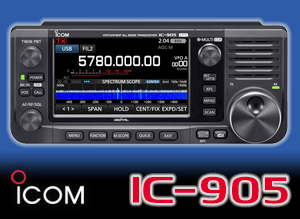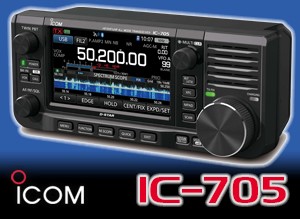The RSGB and Ofcom – what is the PLA/PLT issue all about?
The RSGB has fundamental and grave concerns about the decision of Ofcom and the European Union to permit the continued operation of data-over-mains devices (PowerLine Adaptors, or PLA), which provide local Ethernet communication using the house mains wiring. (PLT refers to the more generic description of this technology—PowerLine Telecommunications).
The RSGB is not prepared to allow the HF radio spectrum to be consigned to history, as this spectrum has always provided, and continues to provide, the only means of infrastructure-independent, long-distance point-to-point communications. It is used by broadcasters, who are now rolling out the new DRM digital technology, military, aviation, safety of life, diplomatic/government services, low power devices (including medical) and The Amateur Radio Services. The HF Radio Spectrum is a valuable natural resource, where the proper management of man-made noise through international standards has been achieved over the last half century. The combination of standards requiring low interference from non-radio devices, and disciplined frequency allocation by ITU, has allowed all forms of radio service to co-exist and operate as intended.
This equilibrium is now being severely disturbed by the roll-out of devices which exceed existing standards by a considerable degree over much of the short wave spectrum, and it is this that the RSGB is resolved to reverse.
The EMC Directive of the European Union requires that:
Equipment shall be so designed and manufactured …… to ensure that …… the electromagnetic disturbance generated does not exceed the level above which radio and telecommunications equipment …… cannot be operated as intended (Essential Requirements (1) in Annex 1, relating to Article 5 of the Directive)
Furthermore, although the PLA units, as measured by RSGB and other test houses, are helpfully notched to minimise interference in the amateur frequency bands, they nevertheless produce conducted emissions which will result in interference across much of the rest of the HF Radio Spectrum. The conducted emissions significantly exceed the limits defined in the benchmark relevant international standard CISPR22 (Harmonised EU Standard EN55022).
The RSGB has clear evidence that the use of this equipment is such that it will inevitably cause interference to other radio systems—most notable reception of short-wave broadcasting and DRM. The RSGB contention, therefore, is that not only are the relevant international standards exceeded by up to 1,000 times in terms of the emission of conducted power, but that these emissions inevitably cause radio equipment in the vicinity to fail to ‘function as intended’, contrary to the essential requirement of the EMC Directive.
The RSGB has been in discussion and correspondence with Ofcom, BIS (the Government Department for Business, Innovation and Skills) and the European Commission over this problem, and these exchanges can be followed in the documents below.
The RSGB Position Statement following these meetings and exchanges can be read here.
The Society will continue to seek every avenue to argue the case for restraint and common sense in the deployment of PLA devices until a sensible solution is reached which adequately protects the radio spectrum.
Category: PLA-PLT










